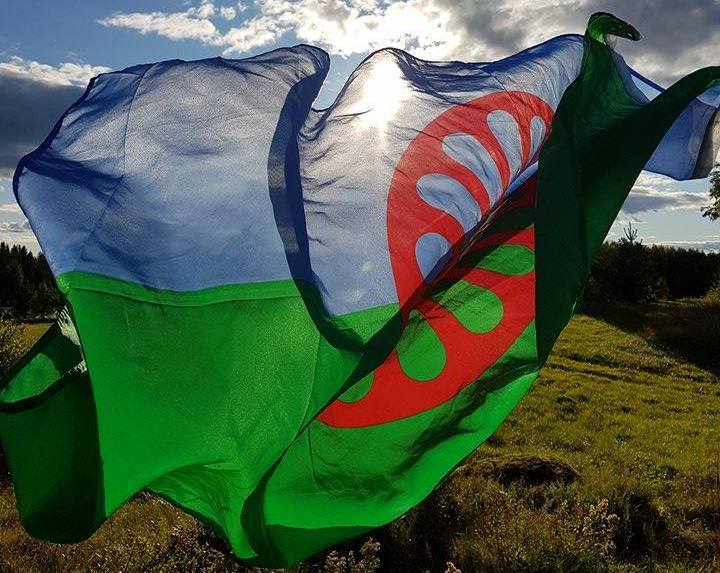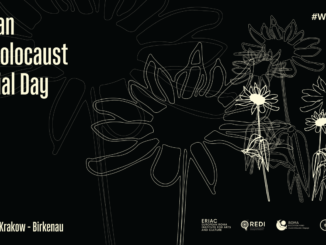
Vid sitt möte den 19 februari 2025 noterade det federala rådet ett juridiskt yttrande om förföljelsen av yenish- och manouche-/sintifolket som beställts av det federala inrikesdepartementet (FDHA). Regeringen erkänner att de handlingar som begåtts inom ramen för programmet ”Highway Children’s Home” måste klassificeras som ”brott mot mänskligheten” enligt gällande internationell rätt. Den vill upprepa den ursäkt som den framförde 2013 till de drabbade individerna och samhällena för de orättvisor som begåtts. DFI kommer att samarbeta med dessa samhällen för att avgöra om det redan utförda minnesarbetet, utöver de åtgärder som hittills vidtagits, bör utökas.
The English text is further down.
Fram till 1981 drabbades mer än 100 000 barn och vuxna i Schweiz av en rad tvångsåtgärder i syfte att ge stöd och placering utanför familjen. Offren för dessa handlingar var personer från missgynnade bakgrunder eller vars livsstil inte överensstämde med tidens sociala normer. Bland dem fanns individer som levde kringresande livsstilar, såsom yenish och manouche/sinti. Den främsta gärningsmannen bakom dessa barnförflyttningar var ”Highway Children’s Work”, ett program som drevs av stiftelsen Pro Juventute. Mellan 1926 och 1973 förde de ansvariga för denna operation, med hjälp av myndigheterna, cirka 600 yeniska barn från sina föräldrar och tvångsplacerade dem i hem, kriminalvårdsanstalter och fosterfamiljer, i strid med rättsstatsprinciperna. Manouche/sinti fanns också bland offren. Dessutom placerades vuxna som hade placerats utanför sina familjer som minderåriga under förmynderskap eller på institutioner, förbjöds att gifta sig och i vissa fall tvångssteriliserades. Förutom Pro Juventute var även religiösa välgörenhetsorganisationer och myndigheter inblandade, med uppskattningsvis 2 000 barn placerade i vård.
Under 1970- och 1980-talen kom dessa metoder att bli föremål för ökad offentlig kritik. Röster höjdes och politiker krävde att det förflutna skulle tas upp. År 1988 och 1992 beviljade parlamentet, på förslag av förbundsrådet, totalt 11 miljoner franc för inrättandet av en ”kompensationsfond för ’vägens barn'”. År 2013 bad förbundsrådet om ursäkt till alla offer för tvångsåtgärder och placeringar utanför familjen. Sedan dess har den federala regeringen lanserat och genomfört olika åtgärder för att fortsätta minnesarbetet och för att kompensera de som lidit skada.
Juridisk utlåtande
I november 2021 bad Unionen för föreningar och representanter för schweiziska nomader (UARNS) den federala regeringen att erkänna att folkmord begicks mot de schweiziska yenish- och manouche/sinti-folken som en del av programmet ”Vägens barn”. I januari 2024 krävde föreningen Radgenossenschaft der Landstrasse erkännande av ”kulturellt folkmord”.
Med tanke på anklagelsernas allvar beslutade FDHA att kalla in en oberoende expert. I mars 2024, i samråd med författarna till de två begärandena, gav de professor Oliver Diggelmann (professor i folkrätt, europeisk rätt, offentlig rätt och politisk filosofi vid Zürichs universitet) i uppdrag att utarbeta ett juridiskt yttrande. Syftet med detta mandat är att avgöra om Schweiz, enligt internationell rätt, bär ansvar för ett brott som ”folkmord” eller ett ”brott mot mänskligheten” mot Yeniches och Manouches/Sintés.
Det finns ett brott mot mänskligheten, men inte folkmord
Slutsatsen i det juridiska yttrandet är att bortförandet av barn och avsikten att bryta familjeband för att eliminera det nomadiska levnadssättet och assimilera yenicherna och manoucher/sintéerna måste klassificeras som ”brott mot mänskligheten” enligt tillämpliga kriterier i folkrätten, i den mening som avses i Romstadgan för Internationella brottmålsdomstolen. Enligt gällande lag var staten gemensamt ansvarig för de begångna handlingarna. Förföljelsen av yenicherna och manoucher/sintéerna skulle inte ha varit möjlig utan inblandning av myndigheter på alla förvaltningsnivåer (federala, kantonala och kommunala). I synnerhet upprätthöll konfederationen nära band – både personliga och ekonomiska – med stiftelsen Pro Juventute, som drev programmet ”Vägens barn”. Även om handlingar som utgör ett ”brott mot mänskligheten” har fastställts, utgör detta ur juridisk synvinkel inte (kulturellt) folkmord. Detta beror på att begreppet ”kulturellt folkmord” (förstörelse av kulturell existens) inte existerar i folkrätten. Enligt det juridiska yttrandet föreligger inte heller något ”folkmord” i strikt bemärkelse, eftersom den ”folkmordsavsikt” (avsikten att fysiskt eller biologiskt förgöra människor) som krävs för att fastställa ett sådant brott inte föreligger.
Förbundsrådet upprepar sin ursäkt
Förbundsrådet noterade idag resultaten av det juridiska yttrandet. Det har skickat ett brev till yenish- och manouche/sinti-samhällena där det upprepar regeringens ursäkter till offren för tvångsåtgärder och placeringar utanför familjen, och betonar att yenish- och manouche/sinti-folket är bland dessa offer. Dessutom uttryckte chefen för det federala inrikesdepartementet, förbundsrådet Elisabeth Baume-Schneider, personligen förbundsrådets sympati till representanter för yenish- och manouche/sinti-samhällena idag. Hon upprepade också behovet av att minnas de orättvisor som begåtts. I detta sammanhang kommer FDHA, i samråd med de berörda, senast i slutet av 2025 att avgöra om det, utöver de åtgärder som hittills vidtagits, finns ett behov av att utöka det minnesarbete som redan utförts.
Åtgärder som redan vidtagits för att minnas tvångsåtgärder i syfte att bistå och placera personer utanför familjen (icke-uttömmande lista)
- År 1983 publicerade den federala regeringen en rapport med titeln Nomader i Schweiz – Situation, Problem, Rekommendationer. År 1998 beställde den federala regeringen en historisk studie om de åtgärder som vidtagits inom ramen för ”Highway Children’s Programme”.
Sedan 1986 har förbundet årligen bidragit till föreningen Radgenossenschaft der Landstrasse och sedan 1997 till stiftelsen Assurer l’avenir des gens du voyage suisses (Att säkra de schweiziska resenärernas framtid). - År 1988 och 1992 beviljade förbundsrådet, på begäran av förbundsrådet, totalt 11 miljoner schweizerfranc för inrättandet av en kompensationsfond för offer för programmet ”Arbete för barn på den höga vägen”.
- År 2013 bad förbundsrådet om ursäkt till alla personer som hade utsatts för tvångsåtgärder för sitt eget bästa eller placerats i vård utanför sina familjer före 1981.
- År 2014 trädde den federala lagen om rehabilitering av personer som placerats i vård genom administrativt beslut i kraft. Dessutom inrättades en nödhjälpsfond.
- År 2017 trädde den federala lagen om tvångsvård och placering av personer före 1981 i kraft. Denna lag föreskriver bland annat solidaritetsbidrag för de drabbade (inklusive yenish- och manouche/sinti-samhällena), rådgivning och stöd för offer samt en vetenskaplig studie.
Switzerland: Federal Council recognises crime against humanity against the Yenish and Manouche/Sinti and reiterates its apology
Bern, 20.2.2025 – At its meeting on February 19, 2025, the Federal Council took note of a legal opinion on the persecution of the Yenish and Manouche/Sinti people commissioned by the Federal Department of Home Affairs (FDHA). The government acknowledges that the acts committed as part of the “Highway Children’s Home” programme must be classified as “crimes against humanity” according to current international law. It wishes to reiterate the apology it made in 2013 to the individuals and communities affected for the injustices committed. The DFI will work with these communities to determine whether, in addition to the measures taken to date, the remembrance work already carried out should be expanded.
Until 1981, a series of coercive measures for the purpose of assistance and placements outside the family affected more than 100,000 children and adults in Switzerland. The victims of these acts were people from disadvantaged backgrounds or whose lifestyle did not correspond to the social norms of the time. Among them were individuals who led itinerant lifestyles, such as the Yenish and Manouche/Sinti. The main perpetrator of these child removals was the “Highway Children’s Work,” a programme run by the Pro Juventute foundation. Between 1926 and 1973, those responsible for this operation, with the help of the authorities, removed around 600 Yenish children from their parents and forcibly placed them in homes, correctional facilities and foster families, in violation of the principles of the rule of law. Manouche/Sinti were also among the victims. In addition, adults who had been placed outside their families as minors were placed under guardianship or in institutions, banned from marrying and, in some cases, forcibly sterilized. In addition to Pro Juventute, religious charities and authorities were also involved, with an estimated 2,000 children being placed in care.
During the 1970s and 1980s, these practices came under increasing public criticism. Voices were raised and politicians demanded that the past be addressed. In 1988 and 1992, Parliament, at the proposal of the Federal Council, granted a total of 11 million francs for the establishment of a “compensation fund for ‘children of the highway’”. In 2013, the Federal Council apologized to all victims of coercive measures and extra-familial placements. Since then, the federal government has launched and implemented various measures to continue the work of remembrance and to compensate those who suffered harm.
Legal opinion
In November 2021, the Union of Associations and Representatives of Swiss Nomads (UARNS) asked the federal government to recognize that genocide was committed against the Swiss Yenish and Manouche/Sinti peoples as part of the “Children of the Road” programme. In January 2024, the association Radgenossenschaft der Landstrasse demanded recognition of “cultural genocide.”
In view of the seriousness of the accusations, the FDHA decided to call in an independent expert. In March 2024, in consultation with the authors of the two requests, it commissioned Professor Oliver Diggelmann (Chair of Public International Law, European Law, Public Law and Political Philosophy at the University of Zurich) to prepare a legal opinion. The purpose of this mandate is to determine whether, under international public law, Switzerland bears responsibility for a crime of “genocide” or a “crime against humanity” against the Yeniches and the Manouches/Sintés.
There is a crime against humanity, but not genocide
The conclusion of the legal opinion is that the removal of children and the intention to break family ties in order to eliminate the nomadic way of life and assimilate the Yeniches and Manouches/Sintés must be classified as “crimes against humanity” according to the applicable criteria of public international law, within the meaning of the Rome Statute of the International Criminal Court. Under current law, the state was jointly responsible for the acts committed. The persecution of the Yeniches and Manouches/Sintés would not have been possible without the involvement of authorities at all levels of government (federal, cantonal and municipal). In particular, the Confederation maintained close ties – both personal and financial – with the Pro Juventute foundation, which ran the “Children of the Road” programme. However, although acts constituting a “crime against humanity” have been established, from a legal point of view, this does not constitute (cultural) genocide. This is because the concept of “cultural genocide” (the destruction of cultural existence) does not exist in public international law. According to the legal opinion, there is also no “genocide” in the strictest sense, since the “genocidal intent” (the intention to physically or biologically destroy human beings) necessary to establish such a crime is not present.
The Federal Council reiterates its apology
The Federal Council took note of the results of the legal opinion today. It has sent a letter to the Yenish and Manouche/Sinti communities in which it reiterates the government’s apologies to the victims of coercive measures and extra-familial placements, and emphasizes that the Yenish and Manouche/Sinti are among these victims. In addition, the head of the Federal Department of Home Affairs, Federal Councilor Elisabeth Baume-Schneider, personally expressed the Federal Council’s sympathy to representatives of the Yenish and Manouche/Sinti communities today. She also reiterated the need to remember the injustices committed. In this context, the FDHA, in consultation with those affected, will determine by the end of 2025 whether, in addition to the measures taken to date, there is a need to expand the remembrance work already carried out.
Measures already taken to commemorate coercive measures for the purpose of assistance and placements outside the family (non-exhaustive list)
- In 1983, the federal government published a report entitled Nomads in Switzerland – Situation, Problems, Recommendations. In 1998, the federal government commissioned a historical study on the actions taken under the “Highway Children’s Programme.”
- Since 1986, the Confederation has made annual contributions to the Radgenossenschaft der Landstrasse association and, since 1997, to the foundation Assurer l’avenir des gens du voyage suisses (Securing the future of Swiss travelers).
- In 1988 and 1992, at the request of the Federal Council, the Federal Assembly granted a total of CHF 11 million for the establishment of a compensation fund for victims of the “Work for Children on the High Road” programme.
- In 2013, the Federal Council apologized to all persons who had been subjected to coercive measures for their own good or placed in care outside their families before 1981.
- In 2014, the Federal Act on the Rehabilitation of Persons Placed in Care by Administrative Decision came into force. In addition, an emergency aid fund was set up.
- In 2017, the Federal Act on Compulsory Care and Placement of Persons prior to 1981 came into force. This act provides, among other things, for solidarity contributions for those affected (including the Yenish and Manouche/Sinti communities), counseling and support for victims, and a scientific study.

redaktionen@dikko.nu
Att vara en oberoende tidning kostar pengar därför använder vi oss av crowdfunding. Det innebär att människor med små eller stora summor hjälper till att finansiera vår verksamhet. Magasin DIKKOs insamlingen sker via swish: 123 242 83 40 eller bg: 5534-0046
Vill du annonsera eller sponsra, synas eller höras i våra media?
Kontakta oss på redaktionen@dikko.nu
eller ring 0768 44 51 61
IBAN: SE19 9500 0099 6042 1813 4395
BIC: NDEASESS




